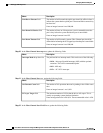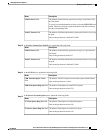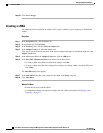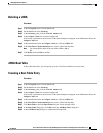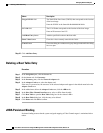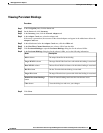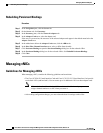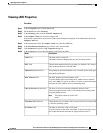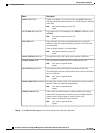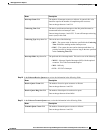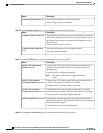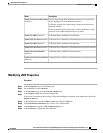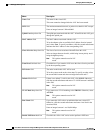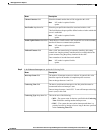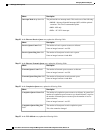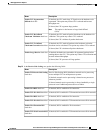
DescriptionName
If there is no default VLAN for this vNIC, click NONE. Otherwise,
click the second radio button and enter a VLAN ID between 1 and 4094
in the field.
This option cannot be used in NIV
mode.
Note
Default VLAN field
If you want to use VLAN trunking, select TRUNK. Otherwise, select
ACCESS.
This option cannot be used in NIV
mode.
Note
VLAN Mode drop-down list
If you want this vNIC to have an unlimited data rate, select OFF.
Otherwise, click the second radio button and enter a rate limit in the
associated field.
Enter an integer between 1 and 10,000 Mbps.
This option cannot be used in NIV
mode.
Note
Rate Limit field
Check this box if the vNIC can be used to perform a PXE boot.Enable PXE Boot check box
Select the channel number that will be assigned to this vNIC.
NIV mode is required for this
option.
Note
Channel Number field
Select the port profile that should be associated with the vNIC.
This field displays the port profiles defined on the switch to which this
server is connected.
NIV mode is required for this
option.
Note
Port Profile drop-down list
Check this box if traffic on this vNIC should fail over to the secondary
interface if there are communication problems.
NIV mode is required for this
option.
Note
Enable Uplink Failover check box
After a vNIC has started using its secondary interface, this setting
controls how long the primary interface must be available before the
system resumes using the primary interface for the vNIC.
Enter a number of seconds between 0 and 600.
NIV mode is required for this
option.
Note
Failback Timeout field
Step 9
In the Ethernet Interrupt area, review the information in the following fields:
Cisco UCS C-Series Servers Integrated Management Controller GUI Configuration Guide, Release 1.4
22 OL-23489-08
Managing Network Adapters
Viewing vNIC Properties



